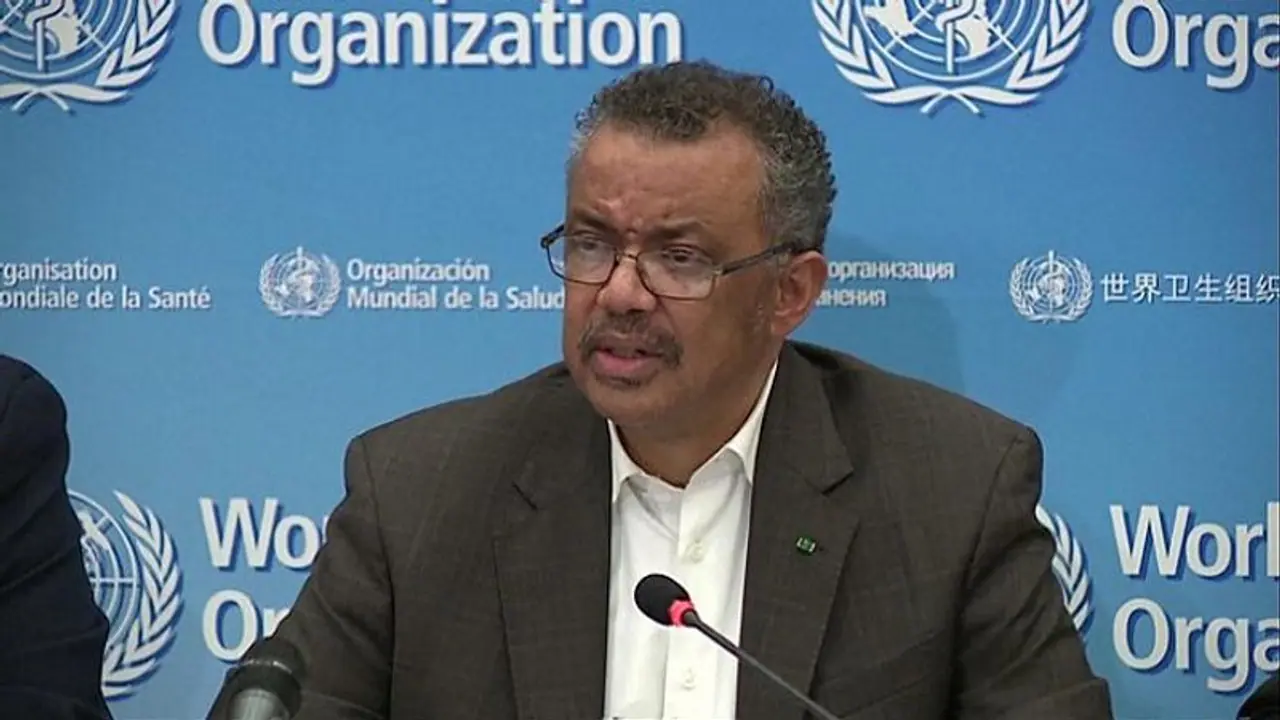The “comprehensive evaluation," sought by a coalition of African, European and other countries, is intended to review "lessons learned” from WHO's coordination of the global response to COVID-19
Geneva: The World Health Organisation bowed to calls on Monday from most of its member states to launch an independent evaluation of how it managed the international response to the coronavirus, which has been clouded by finger-pointing between the US and China over a pandemic that has killed over 3,00,000 people and levelled the global economy.

The “comprehensive evaluation” sought by a coalition of African, European and other countries, is intended to review "lessons learned from WHO's coordination of the global response to COVID-19, but would stop short of looking into contentious issues such as the origins of the new coronavirus.
US President Donald Trump has claimed he has proof suggesting the coronavirus originated in a lab in China while the scientific community has insisted all evidence to date shows the virus likely jumped into humans from an animal.
WHO's normally bureaucratic annual assembly this week has been overshadowed by mutual recriminations and political sniping between the US and China.
Trump has repeatedly attacked WHO, claiming that it helped China conceal the extent of the coronavirus pandemic in its early stages. Several Republican lawmakers have called on WHO director-general Tedros Adhanom Ghebreyesus to resign.
US health and human services secretary Alex Azar said on Monday it was time to be frank about why COVID-19 has spun out of control.
There was a failure by this organisation to obtain information that the world needed and that failure cost many lives, Azar said.
Speaking hours after Chinese President Xi Jinping announced China would provide $2 billion to help respond to the outbreak and its economic fallout, Azar said the US had allocated $9 billion to coronavirus containment efforts around the world.
Tedros said he would launch an independent evaluation of WHO's response at the earliest appropriate moment alluding to findings published on Monday in a first report by an oversight advisory body commissioned to look into WHO's response.
The 11-page report raised questions such as whether WHO's warning system for alerting the world to outbreaks is adequate, and suggested member states might need to reassess WHO's role in providing travel advice to countries.
The Trump administration has claimed that WHO criticised a US travel ban that Trump ordered on people arriving from China.
In his opening remarks at the WHO meeting, Tedros held firm and sought to focus on the bigger troubles posed by the outbreak, saying we have been humbled by this very small microbe.
The pandemic has brought out the best and worst of humanity, he said.
This contagion exposes the fault lines, inequalities, injustices and contradictions of our modern world. It has highlighted our strengths and our vulnerabilities. Science has been hailed and scorned. Nations have come together as never before. And geopolitical divisions have been thrown into sharp relief.
China, meanwhile, sought to divert attention to its renewed efforts to slow the coronavirus pandemic, with Xi announcing the $2 billion outlay over two years to fight it. Last year, China donated about $86 million to WHO.
Xi insisted that China had acted with openness, transparency and responsibility when the epidemic was detected in Wuhan.
He said China had given all relevant outbreak data to WHO and other countries, including the virus's genetic sequence, in a most timely fashion.
Xi said China had done everything in our power to support and assist countries in need, but acknowledged more needed to be done. He said that in recent weeks, China has dispatched medical supplies to more than 50 African countries and that 46 Chinese medical teams were currently on the continent helping local officials.
Other world leaders including the presidents of France, South Korea and South Africa and Germany's chancellor were also piped in to throw their support to the WHO, which has been put on the defensive from a Trump administration that has blamed it for mishandling the outbreak and showering excessive praise on China's response. The European Union and others staked out a middle ground.
Trump ordered a temporary suspension of funding for WHO from the United States, the health agency's biggest single donor pending a review of its early response. The advisory body, echoing comments from many countries, said such a review during the heat of the response could hurt WHO's ability to respond to it.
Xi said China supports the idea of a comprehensive review of the global response to COVID-19 after it is brought under control, and said it should be "based on science and professionalism led by WHO, and conducted in an objective and impartial manner.
Tedros emphasised that WHO declared the coronavirus outbreak to be a global health emergency on January 30, its highest level of alert, at a time when there were fewer than 100 cases outside of China. In the following weeks, WHO warned countries there was a narrowing window of opportunity to prevent the virus from spreading globally.
During the first few months of the outbreak, WHO officials repeatedly described the virus's spread as limited and said it wasn't as transmissible as flu; experts have since said COVID-19 spreads even faster. It declared the outbreak to be a pandemic on March 11, after the virus had killed thousands globally and sparked large epidemics in South Korea, Italy, Iran and elsewhere.
With Agency Inputs
